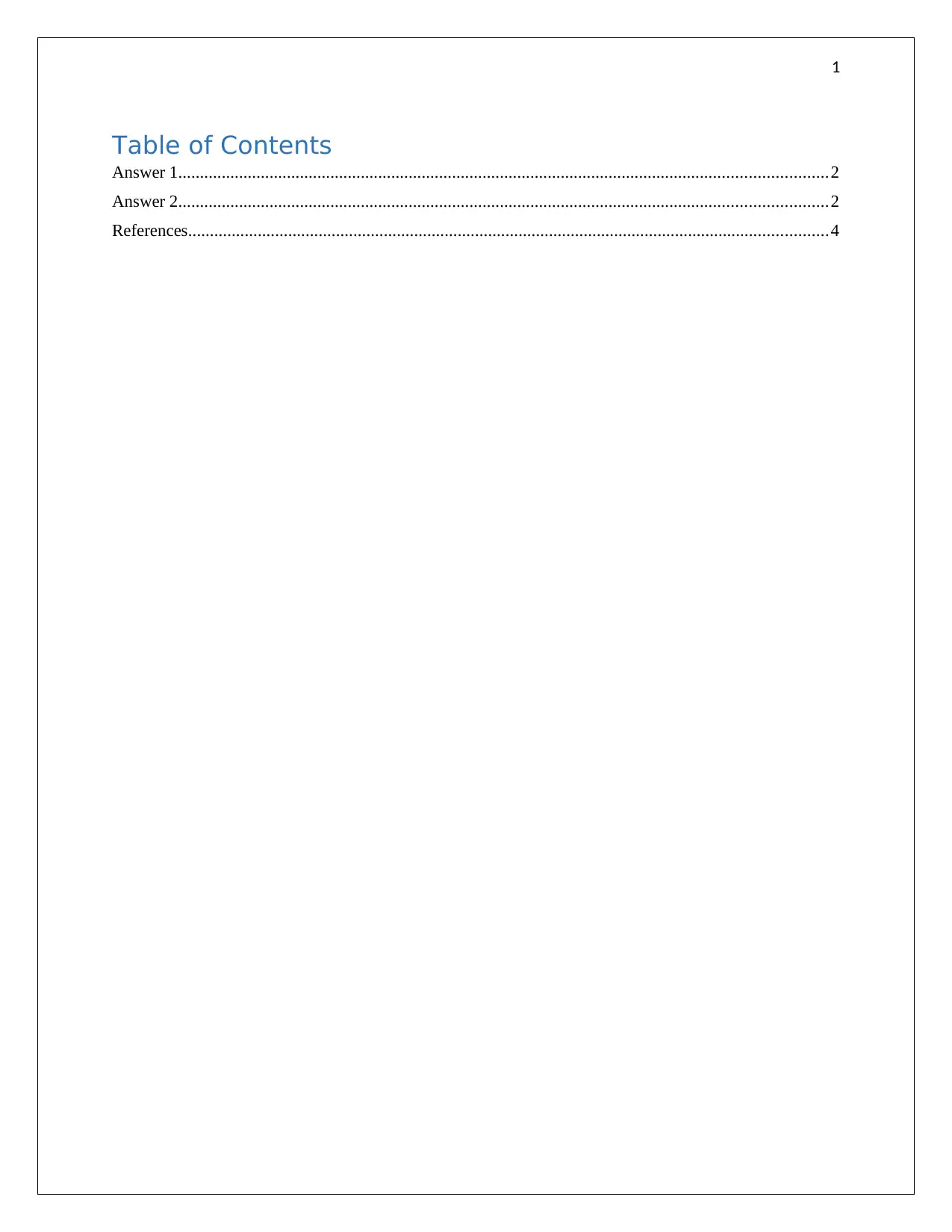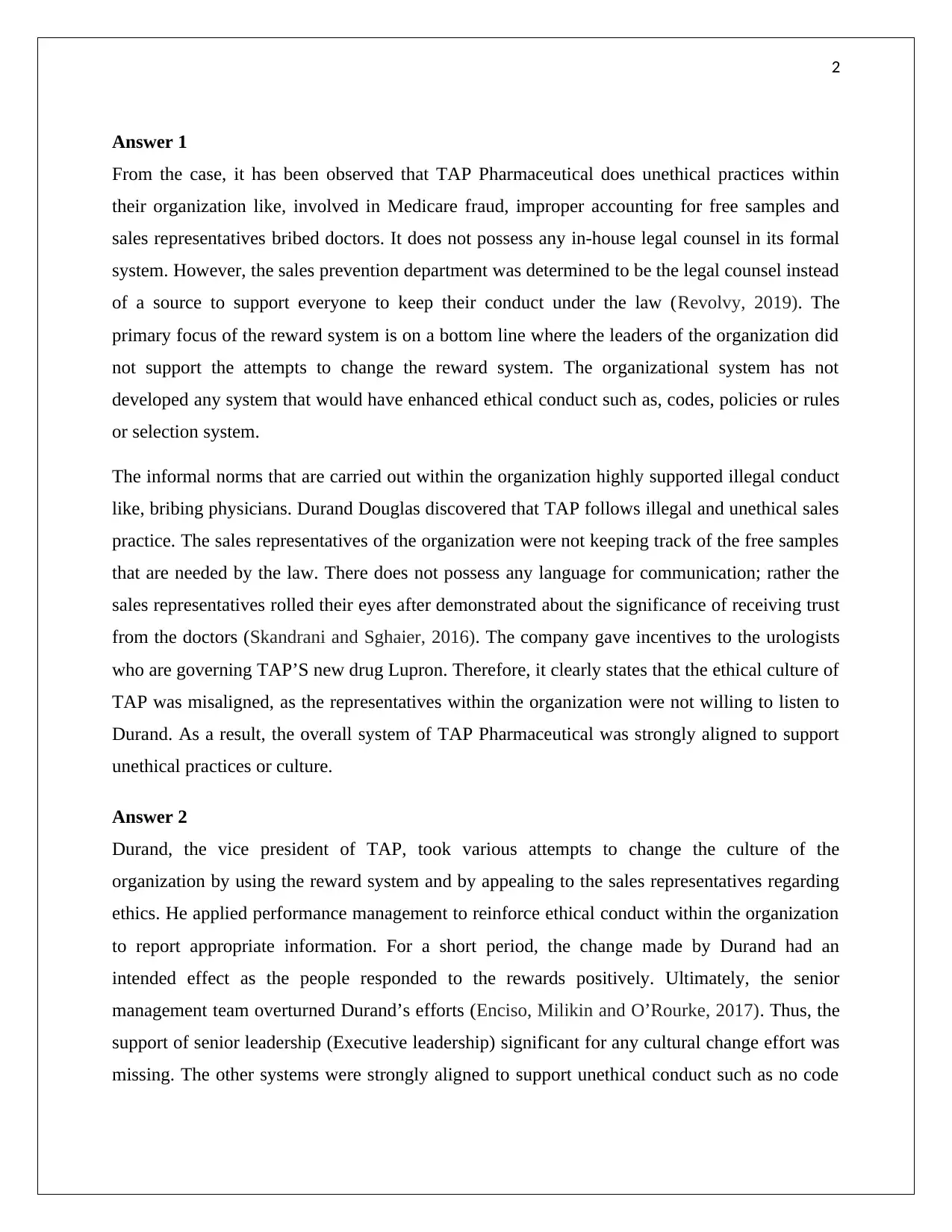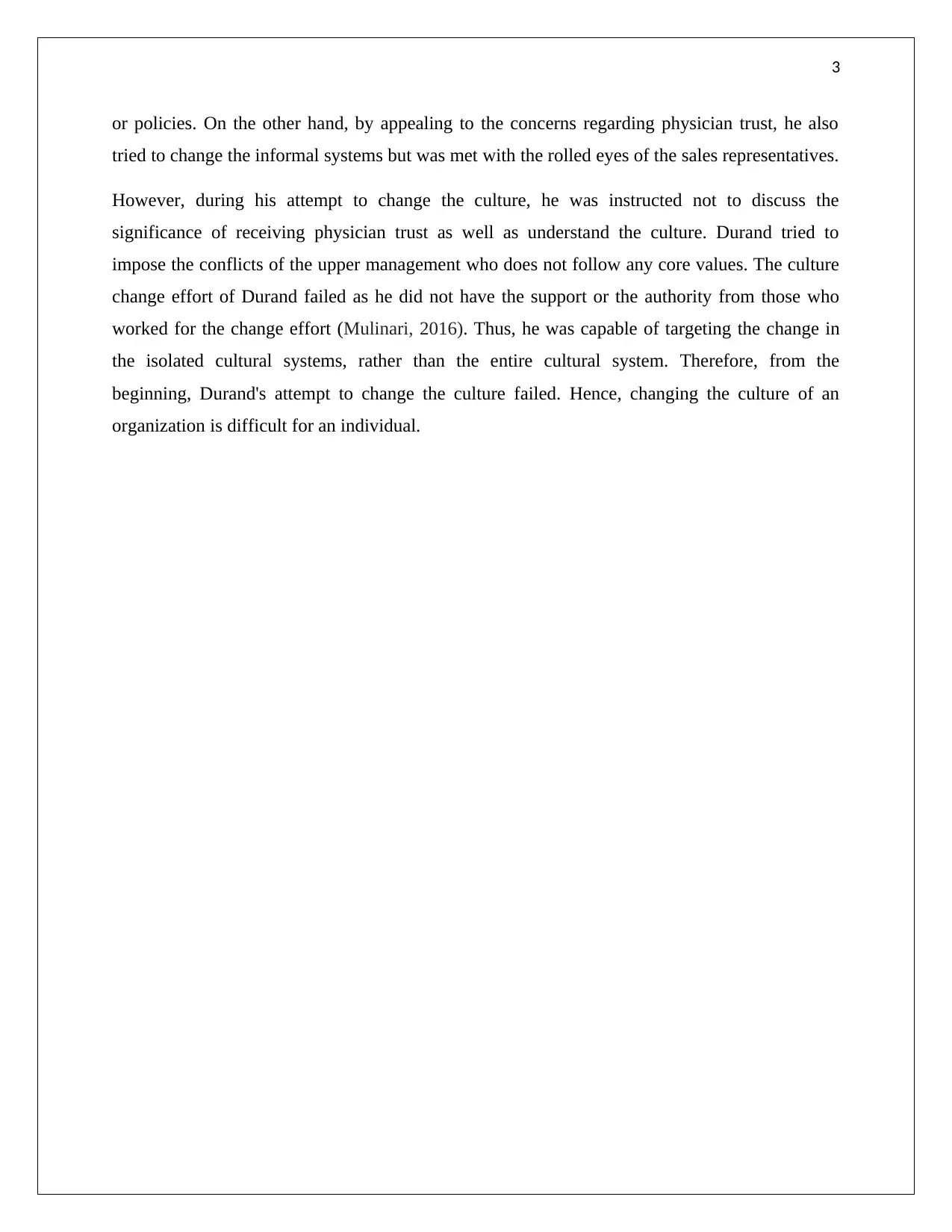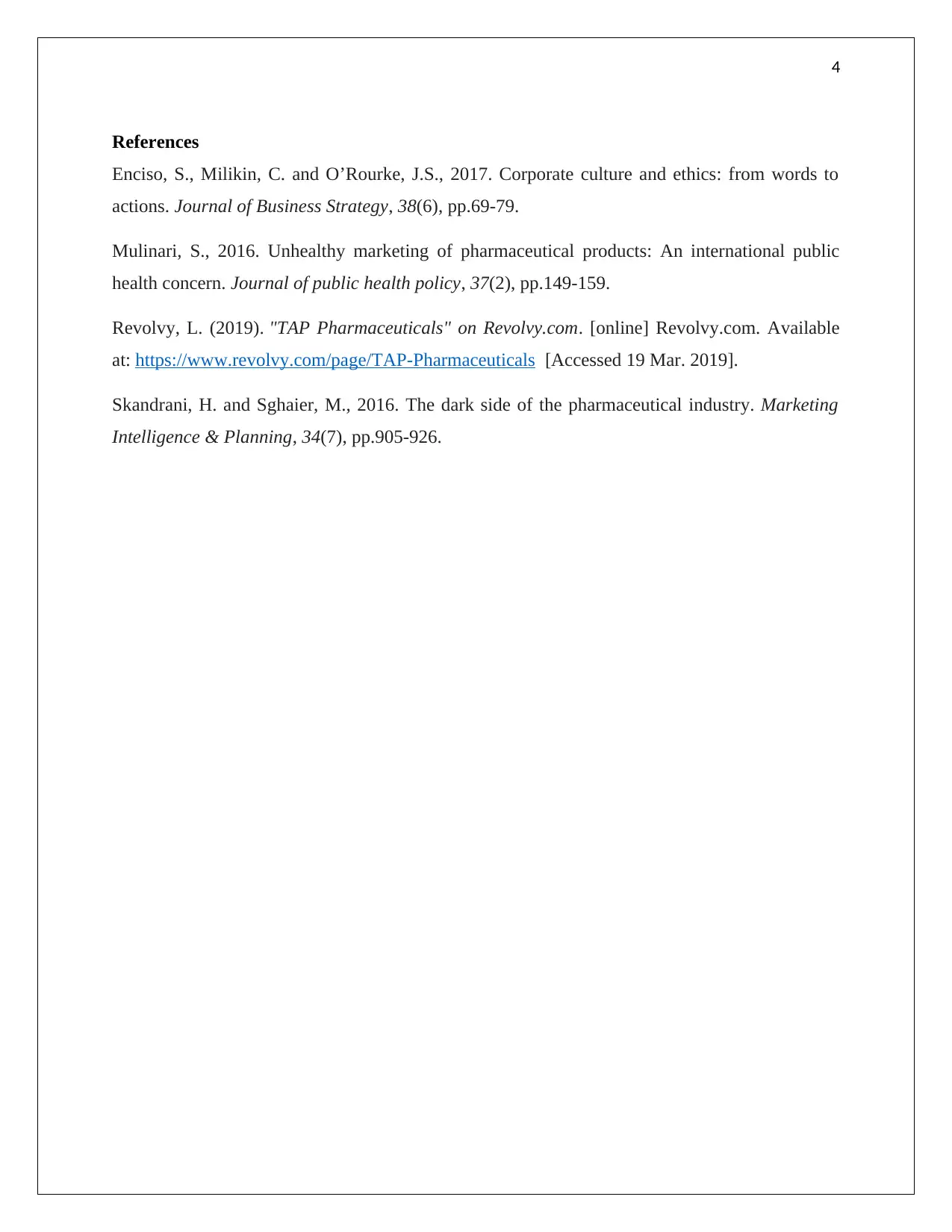Ethical Dilemmas in Leadership: TAP Pharmaceutical Case Study Analysis
VerifiedAdded on 2023/04/08
|5
|614
|56
Case Study
AI Summary
This assignment analyzes the ethical failures within TAP Pharmaceutical, focusing on issues such as Medicare fraud, bribery of doctors, and improper accounting practices. The case study examines the lack of in-house legal counsel and the dominance of a bottom-line-focused reward system that undermined ethical conduct. The analysis highlights the attempts of Durand Douglas to change the unethical culture, and the challenges he faced due to lack of support from senior leadership and entrenched informal norms. The study explores how the organization's systems, including reward structures and informal communication, actively supported unethical behaviors, ultimately leading to the failure of attempts to instill ethical practices. The assignment emphasizes the difficulties in changing organizational culture when faced with resistance from those in power and deeply ingrained unethical practices. The case underscores the importance of ethical leadership and the alignment of organizational systems to support ethical conduct.
1 out of 5












![[object Object]](/_next/static/media/star-bottom.7253800d.svg)